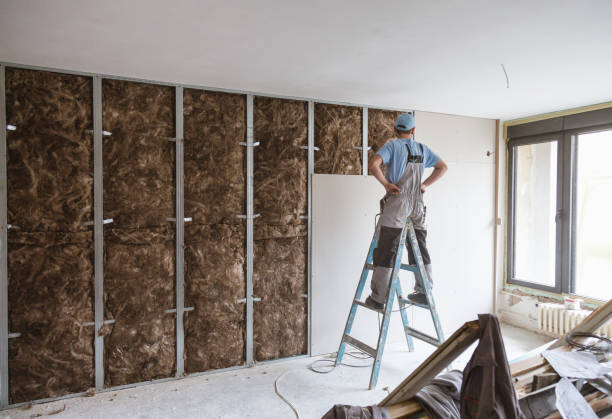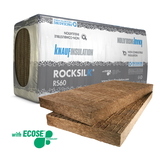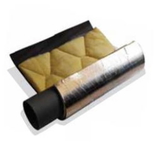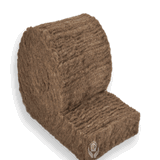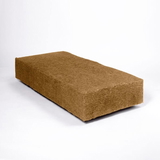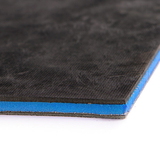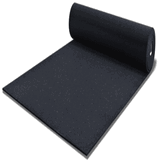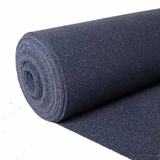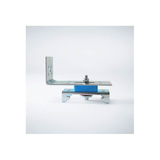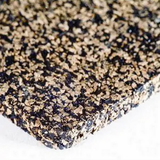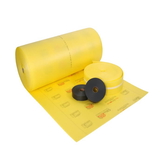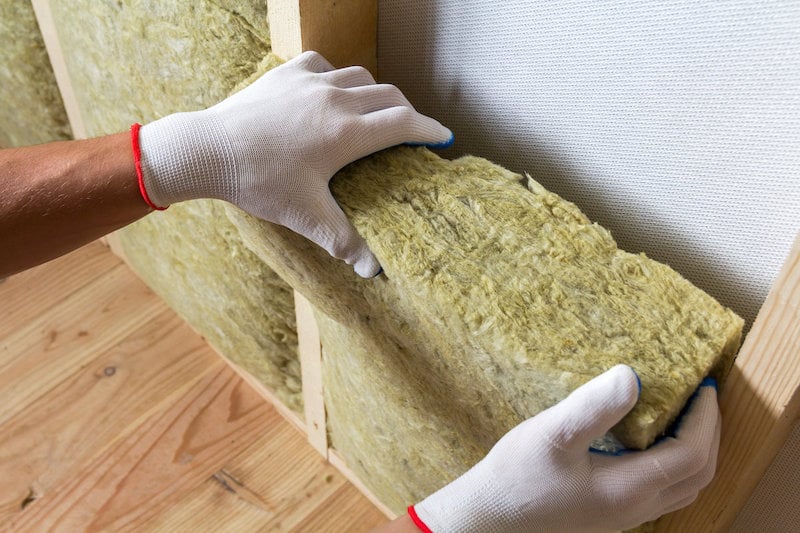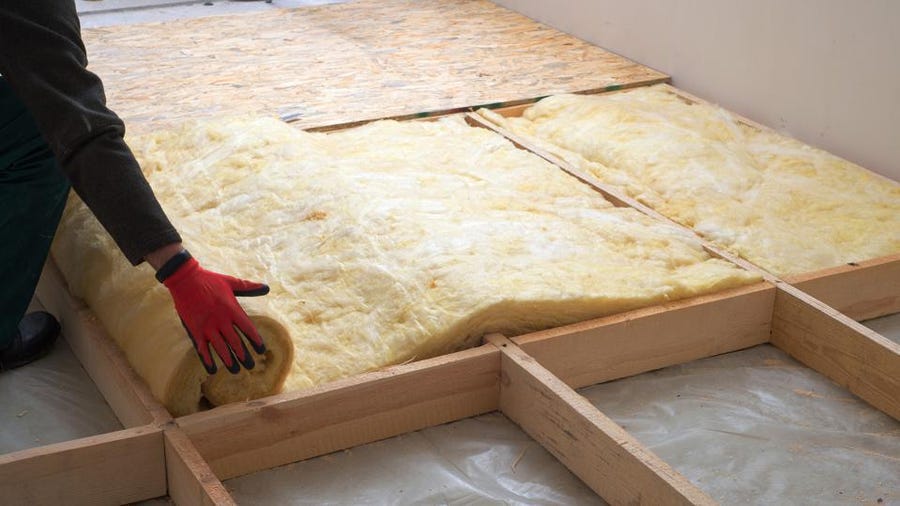- Blogs
- Does Insulation Help With Noise? A Beginner's Guide
Does Insulation Help With Noise? A Beginner's Guide

High-traffic areas like apartment complexes are often prone to unwanted noise. Unwanted sounds, including outside noises, tend to disrupt sleep and cause unnecessary panic.
Installing insulation helps reduce noise by providing an extra layer to block sound.
In any room of any building, here is how insulation can help you
Does Insulation Reduce Noise?
It does! Insulation is typically used to maintain consistent temperatures inside a house. But insulation comes with other helpful properties as well that help with soundproofing your room.
When insulation is specially made for soundproofing purposes, they are thicker or more dense and clearly designed to keep not only heat in but sound outside.
![Sound insulation]() How Does Insulation Reduce Noise?
How Does Insulation Reduce Noise?
You may be wondering, "How does insulation reduce noise?" That is an excellent question to ask, especially since insulation is primarily used for heat or cold.
Some types of insulation, such as reflective insulation, are purely for this purpose as well. It can only reflect heat and cannot serve as a sound absorber.
In essence, insulation forms a barrier between the source of noise, warmth, or cold and its adjacent areas.
A sound is a form of energy that is created through vibrations. It travels in waves and causes anything it comes in contact with to vibrate.
Sound Insulation materials absorb vibrations to reduce noise. With acoustic insulation, there will be additional layers for sound waves to pass through. This decreases the intensity of sound to eventually make it inaudible.
Airborne Noises and Impact Noises
We can classify unwanted sounds into two categories. They are airborne noises and impact noises. The good news is that insulation helps reduce both of these noises!
Airborne sounds may come from outside or inside your house. An airborne sound can be any sound from traffic, voices, television, and music.
On the other hand, impact noise includes footsteps and vibrations. Impact noises can come from your neighbour or large appliances.
The Different Types of Insulation for Noise Reduction
Various types of insulation reduce noise in specific ways. As such, they are used in different areas of the house or building. A few of them are the following:
Blown Insulation![RWA45]()
This type of insulation is commonly found in attics. It is named as such because contractors blow the insulation in chunks into the cavity of the building structure.
Batt Insulation
Batt insulation is the most common type. You may find this within walls. They come in rolls or panels, which make them easy to install.
Popular products used for soundproofing are the following:
1. Mineral Wool Insulation - Mineral wool insulation is also referred to as rock wool insulation. It is denser than most insulators making it effective in reducing noise. It is also resistant to moisture and fire. At Buy Insulation Online, we stock RWA45 and RS45 insulation batts that are designed specially for giving unmatched sound insulation to walls, floors and roofs.
If you are looking for sustainable sound insulation, we recommend using Steico Flex, a woof fibre insulation batt, known to give outstanding sound insulation
Buy Mineral Wool Insulation Now!
2. Acoustic Plasterboards - This has a higher density core than other types of plasterboards. The sound that travels through this type of insulation scatters more.
This adds to its sound resistance. Acoustic plasterboards are a great way to soundproof walls, especially if you have space constraints.
3. Acoustic Insulation Rolls - These insulation rolls are easy to install. Many people turn to this product to reduce noise because of its flexibility and ease of use.
These acoustic insulation rolls are generally made of fibreglass and are dense enough to reduce sound insulation in any application.
4. Acoustic Duct Insulation - This product is commonly used in industrial or commercial sites. It reduces the sound produced by operating ductwork thereby giving you a more quiet and efficient workplace.
Additional Tips for Effective Soundproofing Insulation
Insulation works for soundproofing homes from outside noises and vibrations. However, there are one or a few more things you can do to further minimise different noises entering your home:
#1 Use Thick Rugs and Curtains
The type of covering you use also helps reduce noise. Rugs and curtains will not only make your room look nice, but they can also block noise from below and outside.
#2 Cover up the Holes in Your Walls
Start small! Check the possible holes and cracks in your home as they contribute to noise access. You may use filler, caulk, or plaster to fill them in.
#3 Upgrade Your Windows and Doors
Your access to the outdoors is also the noise's way in. You can make your windows double-paned or try installing weathering strips to your door frames. You can also upgrade hollow doors to solid ones.
Once you do, you will feel all the difference in your heating levels and soundproofing.
Frequently Asked Questions![acoustic plasterbaords]()
What Material Is Best for Acoustic Sound Insulation?
Mineral wool is the best soundproofing insulation.
Mineral wool is noted as one of the best types of insulation because it can insulate and soundproof well. It creates a tight barrier that keeps sound waves restricted.
CAUTION: A study has found that exposure to mineral wool insulation and its particles MAY be harmful when inhaled. However, more concrete studies are needed to confirm if some properties of mineral wool are carcinogenic.
Is Thicker Insulation Better for Soundproofing?
Yes, thicker and heavier materials are better for soundproofing.
They can reduce sound transmission better. If you are using acoustic slabs, use a thickness that is not deeper than your wall's frame.
You can also install insulation into your flooring for added soundproofing.
What Can I Put on Walls for Acoustic Insulation?
Drywall and other materials can give you an air-tight wall space and, therefore, a solid sound barrier. You only have to seal them in your walls to create an extra layer.
Not only will you have insulation, but you will also have an acoustic one!
Conclusion:
Insulation helps reduce noise in any room. Other parts of your room may also contribute to your soundproofing. This includes rugs, curtains, holes, windows, and doors.
Install acoustic insulation to prevent unwanted noises from disrupting the peace of your home!
For soundproofing insulation at a low cost, visit Buy Insulation Online. We supply Acoustic batts, sound insulation rolls and much more in the UK.

Samuel Hitch
Managing Director
Buy Insulation Online.
Leave A Reply
Your feedback is greatly appreciated, please comment on our content below. Your email address will not be published. Required fields are marked *





